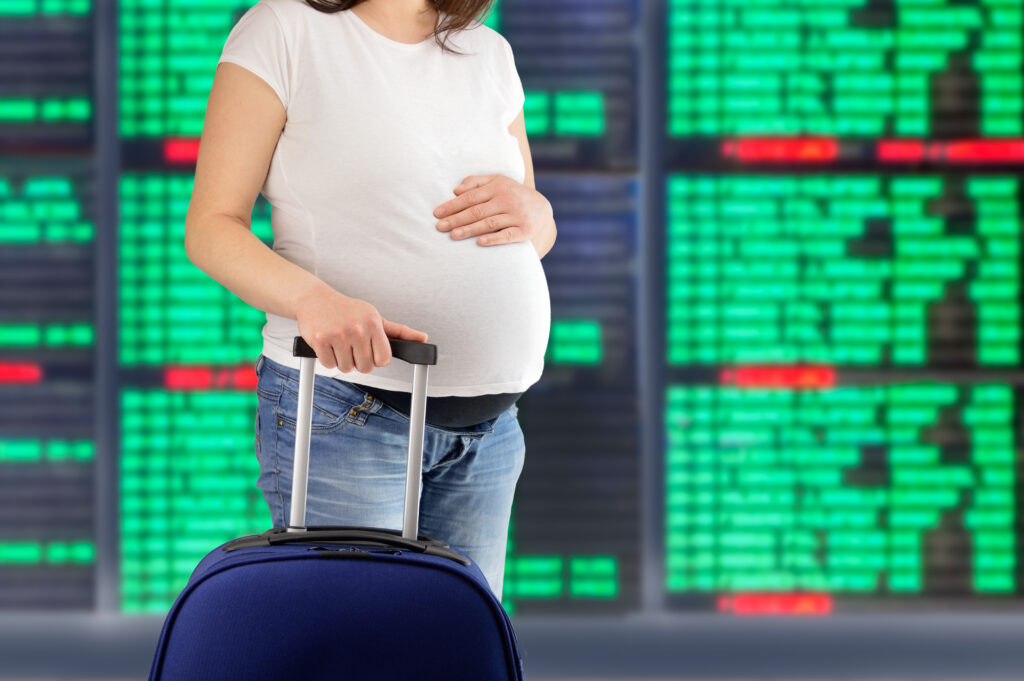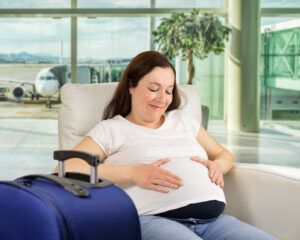 Travel Advice
Travel Advice
Flying While Pregnant – Travel Advice
Flying When Pregnant: Safe Travel Tips & UK Guidance
Flying while pregnant UK? Yes – it is generally safe to fly during a healthy pregnancy. Official UK health authorities, including the NHS and Civil Aviation Authority (CAA), agree that air travel is not harmful to you or your baby in an uncomplicated pregnancy. There is no evidence that flying will cause miscarriage, early labour, or waters breaking. However, you should always follow medical advice and make some preparations for a comfortable, safe trip. This guide provides clinically reassuring information on flying while pregnant, based on NHS, CAA, and other UK medical guidance.
Is Flying While Pregnant Safe? Advice for UK Travellers
Flying is usually safe in pregnancy if you have no complications. The NHS confirms that “flying isn’t harmful” during a normal pregnancy. The Royal College of Obstetricians and Gynaecologists (RCOG) likewise states that occasional air travel has no harmful effect on a straightforward pregnancy. Cabin pressure and altitude changes on commercial flights do not negatively impact maternal or foetal health in a typical pregnancy.
That said, it’s wise to discuss any health issues or pregnancy complications with your midwife or GP before flying. If you’re considering flying while pregnant, each trimester brings different considerations for comfort and safety. See below for trimester-specific guidance.
Flying While Pregnant in the First Trimester (0–12 Weeks)
Flying while pregnant in the first trimester is medically safe, though it can be uncomfortable due to nausea, vomiting and fatigue. The risk of miscarriage is higher during the first 12 weeks naturally, but flying does not increase that risk. If you feel well enough, you can fly. Bring snacks, stay hydrated, and consult your healthcare provider if you have concerns before air travel during early pregnancy.
Flying While Pregnant in the Second Trimester (13–27 Weeks)
This is considered the best time for flying while pregnant. The NHS notes that early symptoms ease and travel is more comfortable in the second trimester. Energy levels improve, nausea tends to subside, and you’re not yet restricted by the final months of pregnancy. Still, stay hydrated and move during the flight.
Flying While Pregnant in the Third Trimester (28–40 Weeks)
After 28 weeks, most airlines require a fit-to-fly letter. If you’re flying while pregnant after 36 weeks in a single pregnancy or 32 weeks with multiples, most UK airlines will not allow travel. Always check with your doctor and airline before booking.
UK Airline Rules for Flying While Pregnant After 28 Weeks
- Fit-to-Fly Letter: From 28 weeks, most airlines require a letter from your doctor or midwife confirming your due date and that the pregnancy is uncomplicated. NHS source
- Cut-off for Travel: Most UK airlines will not allow flying while pregnant beyond 36 weeks for a single baby or 32 weeks with twins or more.
- Varied Airline Policies: Always check the specific guidelines on your airline’s website before flying while pregnant.
Health Risks of Flying While Pregnant and How to Stay Safe
Deep Vein Thrombosis (DVT)
Pregnancy and long flights both increase the risk of DVT. To stay safe while flying while pregnant:
- Wear compression stockings
- Stay well hydrated
- Take short walks in the cabin regularly
- Do in-seat leg and foot exercises
Miscarriage Fears
The NHS confirms that flying does not cause miscarriage. The higher rate in early pregnancy is due to natural causes, not flying. If in doubt, ask your GP before flying while pregnant.
Cabin Environment
Aircraft cabin pressure, oxygen levels and air quality are not dangerous during normal pregnancy. Expect minor swelling, nasal stuffiness, or ear pressure. These are common and not serious.
When You Should Not Fly While Pregnant
Avoid flying if your healthcare provider advises against it. Do not fly during pregnancy if you have:
- Risk of preterm labour
- Severe anaemia
- Placental problems or recent bleeding
- Heart or lung disease
- Recent sickle cell crisis
Is Airport Security Safe During Pregnancy?
Yes. Going through security scanners is safe during pregnancy. UK airports use non-ionising millimetre wave technology. BIR confirmation

Do You Need to Tell Airlines You’re Flying While Pregnant?
Yes – if you’re flying while pregnant in the UK and past 28 weeks, you’ll need a fit-to-fly letter. Informing the airline early helps avoid issues at check-in and allows for support requests.
Travel Insurance and Medical Cover When Flying While Pregnant
- Buy travel insurance that covers pregnancy complications and possible early birth
- Ask your travel insurer what cover they provide if you do go into premature labour – will they cover hospital care and repatriation flights back to the UK?
- Many travel insurance policies stop cover from 32 weeks even though airlines may allow flight up to 36 weeks – always make sure you know what your insurer will cover
- Bring your maternity notes and personal medication
- Apply for a GHIC card for travel in Europe
- Check health advisories at your destination – including Zika or malaria
Conclusion: Flying While Pregnant UK
Flying during pregnancy is safe for most people with uncomplicated pregnancies. You can usually fly up to 36 weeks with the right precautions. Check airline rules, consult your GP, and use this NHS-based guide to travel confidently. Full NHS guidance
If you were to unexpectedly give birth while abroad, SkyCare can help. Our neonatal air ambulance service provides safe and specialist medical repatriation for newborns and parents. Our aircraft are equipped to handle even complex neonatal cases, and we work with hospitals and healthcare providers worldwide to get families home safely and quickly. Learn more about how we support premature babies and their families at skycare.uk/neonatal-air-ambulance/.
Reviewed by Dr Lee Collier – SkyCare Repatriation on 09/06/2025 | next review due 09/06/2027 | published on 09/06/2025

 SkyCare
SkyCare 